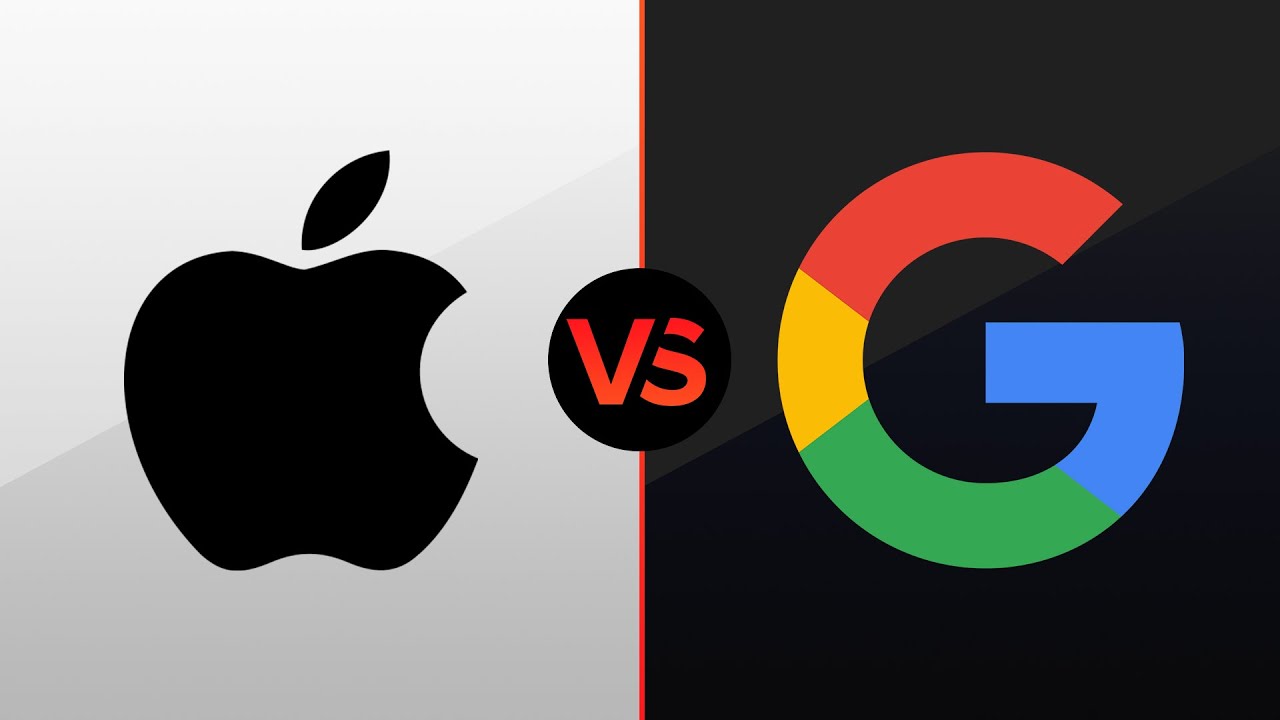Apple's Actions And Their Unintended Consequences For Google

Table of Contents
The Privacy Push and Google's Advertising Revenue
Apple's unwavering focus on user privacy has significantly impacted Google's lucrative advertising business. This section examines how Apple's choices have challenged Google's core revenue model and forced it to re-evaluate its approach to data collection and advertising.
IDFA Changes and Targeted Advertising
Apple's introduction of App Tracking Transparency (ATT) and the subsequent changes to the Identifier for Advertisers (IDFA) dramatically altered the landscape of targeted advertising. These changes, designed to enhance user privacy, significantly reduced Google's ability to track users across apps and websites for personalized ad delivery.
- Decreased ad revenue for Google: The limitations imposed by ATT resulted in a measurable decline in Google's mobile advertising revenue, forcing the company to seek alternative revenue streams.
- Increased user privacy: While impactful for Google's bottom line, ATT has demonstrably improved user privacy by giving individuals more control over their data.
- Challenges in personalized ads: The restrictions on tracking have made it more difficult for Google to deliver highly personalized ads, impacting the effectiveness of its advertising campaigns.
The impact on Google's mobile advertising business is substantial. The company has responded by investing heavily in its Privacy Sandbox initiative, aiming to develop privacy-preserving technologies for advertising. This represents a significant shift in Google's strategy, acknowledging the increasing importance of user privacy in the digital world.
Enhanced Privacy Features in iOS and Android's Response
Apple's strong emphasis on user privacy in iOS didn't just impact its own ecosystem; it forced Google to enhance privacy features in Android to remain competitive. This competitive pressure pushed Google to accelerate its own privacy initiatives.
- Increased focus on user data control in Android: Google has implemented features that give Android users greater control over their data, mirroring some of Apple's privacy-centric functionalities.
- Potential challenges for Google in balancing user privacy and data collection for ad targeting: This balancing act remains a key challenge for Google. It must find ways to collect the data necessary for effective ad targeting without compromising user privacy.
This forced improvement in Android's privacy features highlights the ripple effects of Apple's actions. Google's response showcases the competitive pressures driving innovation in user privacy and data security.
The Rise of Apple's Services Ecosystem and Google's Market Share
Apple's expanding services ecosystem, with offerings like Apple Pay and iCloud, directly competes with Google's services, impacting Google's market share and overall growth.
Apple Pay and Google Pay's Position
Apple Pay's seamless integration within the iOS ecosystem has given it a significant advantage over Google Pay. This integration, coupled with strong user loyalty within Apple's environment, presents a considerable challenge for Google.
- Apple's dominance in the iOS ecosystem: Apple's control over its hardware and software allows for a tightly integrated payment system that's readily accessible to its vast user base.
- Google's challenges in penetrating the Apple user base: Google Pay faces an uphill battle in attracting users deeply entrenched in the Apple ecosystem.
- Comparative market share figures: While precise figures vary depending on the region, Apple Pay consistently holds a larger market share in regions with a high concentration of iPhone users.
This dominance impacts Google's strategic financial outlook, highlighting the limitations of competing in a closed ecosystem.
iCloud vs. Google Drive and Cloud Services
The competition between iCloud and Google Drive illustrates the contrasting strategies of Apple and Google. Apple's focus is on seamless integration within its ecosystem, whereas Google offers a broader suite of cloud services.
- User loyalty within the Apple ecosystem: iCloud benefits from the inherent loyalty of Apple users, who are less likely to switch to a different cloud storage provider.
- Google's broader cloud services offerings (Gmail, Google Photos, etc.): Google's cloud services are often integrated with other Google products, creating a more extensive ecosystem.
- Market share comparisons: While Google Drive holds a larger overall market share, iCloud enjoys significant penetration within the Apple user base.
The competitive dynamics in cloud storage highlight the ongoing struggle between an integrated ecosystem approach and a broader, more diverse range of services.
Apple's Hardware Dominance and Google's Software Strategy
Apple's hardware dominance, particularly the iPhone's market share, significantly influences Google's software strategy and its overall reach.
The iPhone's Influence on Mobile Search
Google's mobile search dominance is inextricably linked to the iPhone's market share. Google's search engine is the default search engine on iPhones, showcasing the dependency Google has on Apple's operating system.
- Apple's control over the user experience: Apple's control over iOS allows it to influence how users interact with search results and other apps.
- Google's reliance on the iOS platform for search distribution: Google's reach to a substantial portion of mobile users depends on its relationship with Apple.
- Potential risks associated with this dependency: Any changes in Apple's policies could significantly impact Google's search market share and revenue.
This reliance highlights the potential long-term risks for Google in its mobile search strategy.
Competition in the Smart Home and Wearables Market
Apple's integrated approach to hardware and software extends to the smart home (HomeKit) and wearables markets, impacting Google's efforts in these areas (Google Home and Wear OS).
- Apple's integrated approach to smart home devices: Apple's tight integration of HomeKit with its other devices and services provides a seamless user experience.
- Google's broader compatibility across platforms: Google Home aims for broader compatibility across various devices and platforms, a strategy that contrasts with Apple's more closed ecosystem.
- Growth and market share comparisons: While both companies are significant players, Apple often holds a greater market share in specific regions or product categories.
Apple's hardware-centric approach poses a significant challenge to Google's software-focused strategy in these burgeoning markets.
Conclusion
Apple's strategic moves, primarily driven by a focus on user privacy and a tightly integrated ecosystem, have created both challenges and opportunities for Google. The impact is evident across diverse sectors, from advertising and mobile payments to cloud services and smart home technology. Google's response has been a continuous process of adaptation and innovation.
Understanding the intricate relationship between Apple's actions and their consequences for Google is crucial for anyone following the dynamic tech landscape. Keep exploring the evolving dynamics between these tech giants to stay informed about future market shifts and how Apple's actions and their unintended consequences for Google might impact you.

Featured Posts
-
 El Ex Primer Ministro Britanico Boris Johnson Victima De Ataque De Avestruz En Texas
May 11, 2025
El Ex Primer Ministro Britanico Boris Johnson Victima De Ataque De Avestruz En Texas
May 11, 2025 -
 Fun Takes Flight At Flights Your Guide To Joyful Travel
May 11, 2025
Fun Takes Flight At Flights Your Guide To Joyful Travel
May 11, 2025 -
 Tam Krwz Pr Mdah Ka Hmlh Wydyw Swshl Mydya Pr Wayrl
May 11, 2025
Tam Krwz Pr Mdah Ka Hmlh Wydyw Swshl Mydya Pr Wayrl
May 11, 2025 -
 Find Out Where To Watch The Ny Knicks Vs Cleveland Cavaliers Game Schedule Tv Listings And Live Streams
May 11, 2025
Find Out Where To Watch The Ny Knicks Vs Cleveland Cavaliers Game Schedule Tv Listings And Live Streams
May 11, 2025 -
 Jeff Bezos Bond Poll The Overwhelming Choice For 007
May 11, 2025
Jeff Bezos Bond Poll The Overwhelming Choice For 007
May 11, 2025
